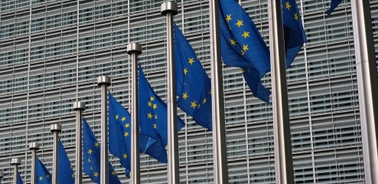- Home
- We Are Law School
- News
- The Future Of European Private Law
The future of European private law

The future of European private law was discussed during a conference that King’s College London organized on 8 February 2019, gathering experts from across the continent and beyond. The purpose of the conference was to explore possible developments of private law within the EU, following the failure of several attempts to harmonise large areas of it. Professor Francisco de Elizalde represented IE University with a paper on the future of contract law.
The withdrawal of the Regulation Proposal for a Common European Sales Law (CESL) in 2014 marked the end of the heyday of the intents to harmonise European private law, after decades of enthusiasm, which included other Commission-backed proposals such as the Principles of European Contract Law (PECL) and the Draft Common Frame of Reference (DCFR). In respect of contracts, this first stage of a modern, unified, European contract law was recently assessed in a book edited by Professor Elizalde (Uniform Rules for European Contract Law? A Critical Assessment, Hart, 2018).
The papers presented at the conference covered a variety of issues, including the challenges that technology poses to private law. In general, attendants were supportive of the role of the EU in private law and of a certain level of harmonisation in Europe.
However, discrepancies emerged concerning the meaning and scope of EU private law. To this respect, some scholars understand that EU private law is of regulatory nature, sector-specific, with a lack of overall coherence that impedes uniform rules. From this perspective, the boundaries between public and private law are blurred, with a strong prevalence of community interests. Instead, other participants believe that the role of private law is autonomous from public law, with its own intrinsic values. Furthermore, this view understands that it is possible to build a coherent EU system which has private parties and corrective justice at its centre, with due care for societal concerns as well.
The current image of EU private law is indeed fragmented in the absence of a common instrument. It is also pluralistic or hybrid, in the sense that national law and EU law are intertwined following procedural autonomy of Member states and due to gaps resulting from a lack of harmonisation. Because of procedural autonomy, remedies for the infringement of EU law pertain, to a large extent, to national law, subject to the limitations arising from the principles of effectiveness and equivalence. The status quo creates barriers to the internal market and does not contribute to legal certainty.
The question is, then, about the best way forward. According to Professor Elizalde, the EU should learn from the failed process to harmonise private law and contract law specifically. It should take into account the current acquis communautaire which is not just consumer law but includes private law regulations in areas such as investment law, competition law and digital trade law. Any harmonised instrument must also reflect the impact of EU Primary law (Treaties, Charter of Fundamental Rights) on private law, to the extent that the Court of Justice of the European Union (CJEU) has recognized it. The path towards a more coherent EU private law is, thus, complex.
In Professor Elizalde’s view, EU private law is unique. With a mixed philosophical basis, utilitarian (law promoting the internal market) and egalitarian (protecting weaker parties), it deviates from the largely liberal and individualistic grounds underlying national private law. This has consequences of immense proportions. Communitarian standards currently substitute the classic individual stance. For instance, traditional notions of contract law such as agreement and defects of consent are replaced by the requirement of transparency which is benchmarked by the average consumer or the average investor. Personal knowledge of the aggrieved party does not hinder its action, in a clear deviation from established rules in national law.
EU private law is already building itself up as “mass law”, as Professor Elizalde describes the phenomenon, designed to fit the needs of standardization in transactions. This approach, which is combined with plainer, more pragmatic and user-friendlier categories (as opposed to those of national law) is original. It could also be suited to match the needs of technology and innovation – just think of a simpler law in predictive justice or its combination with artificial intelligence to solve conflicts. However, corrective justice, actual fairness among parties, could suffer from a standardized model. Means to adequately tackle this problem are yet to be conceived.
Overall, the future of EU private law is challenging and thought-provoking. New ways of understanding regulation of private relationships are needed to cope with a reality that has little in common with that of the XIX century, which is still at the core of private law. The university expects to contribute to the ongoing debate. Within the framework of the Commission-financed Jean Monnet Module “Liability of Robots. A European vision for a new legal regime”, IE Law School professors and students are already discussing how the law for the forthcoming times should look like. Would it be recognisable?